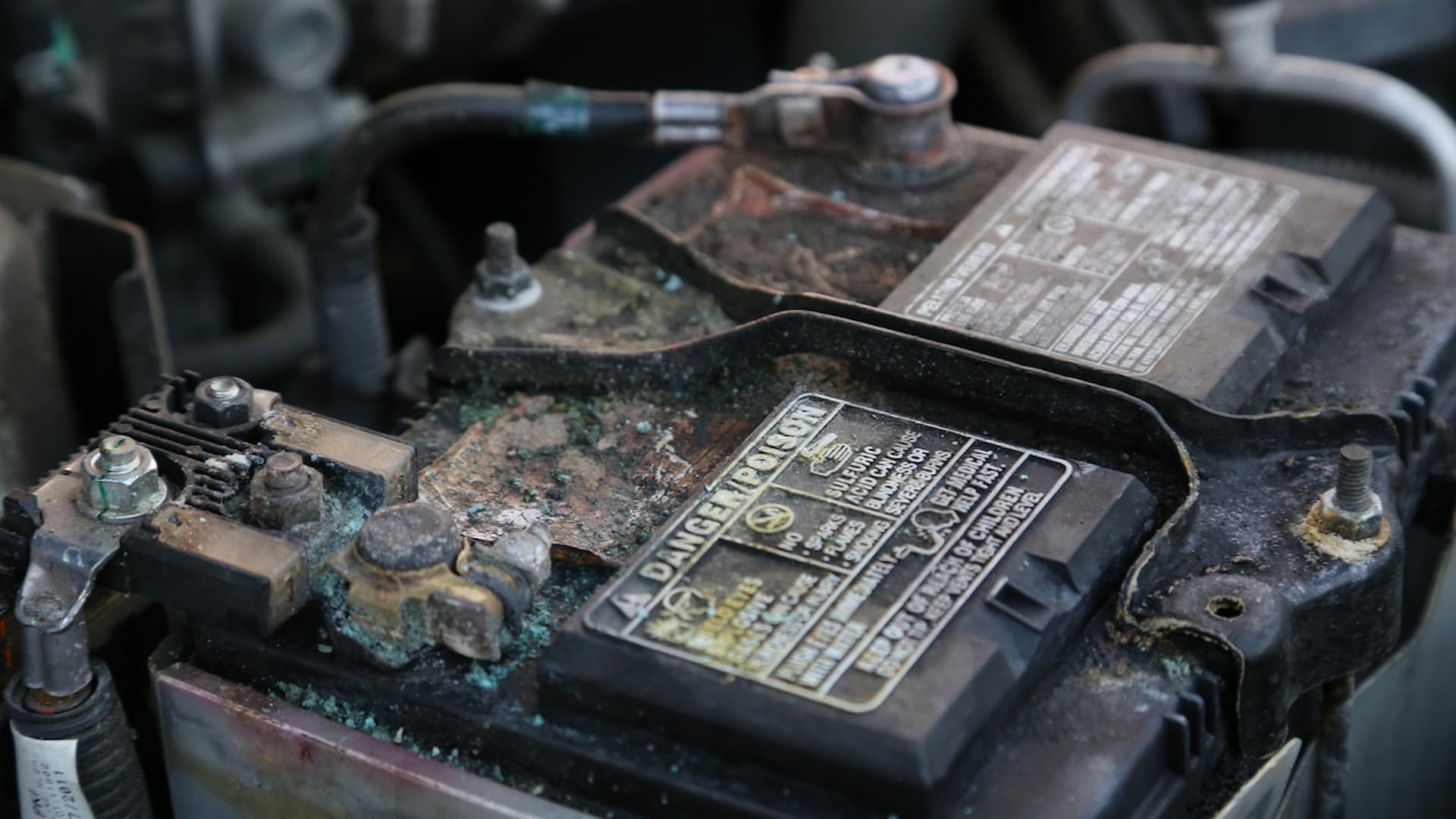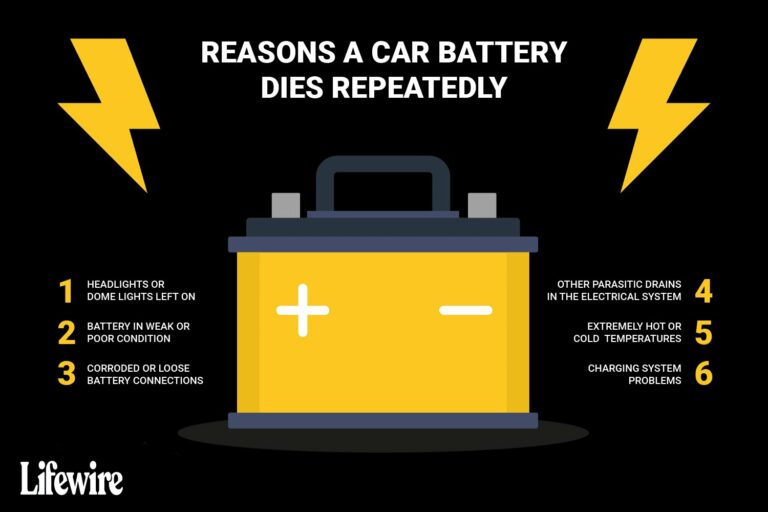Prevent Car Battery Corrosion: Effective Tips & Tricks
Tired of dealing with car battery corrosion buildup? We’ve got you covered! No more frustrating mornings when your car won’t start or dealing with the ugly and damaging effects of corrosion. In this article, we will reveal practical tips and preventive measures to keep your car battery corrosion-free. Say goodbye to the hassle and expense of regularly replacing corroded batteries. Don’t let car battery corrosion buildup ruin your day. Let’s dive in and explore how to prevent it from happening in the first place.
How to Prevent Car Battery Corrosion Buildup?
Car battery corrosion buildup is a common issue that can lead to poor battery performance and even electrical problems in your vehicle. Corrosion occurs due to a variety of factors such as moisture, heat, battery acid, and age. However, by following a few preventive steps, you can minimize the risk of corrosion buildup and prolong the life of your car battery. In this article, we will discuss ten effective ways to prevent car battery corrosion buildup.
1. Keep the Battery Clean
One of the simplest ways to prevent battery corrosion buildup is by regularly cleaning the battery. Follow these steps:
- Start by disconnecting the negative (black) battery cable using a wrench.
- Mix a solution of baking soda and water to create a cleaning paste.
- Apply the paste to the battery terminals and any other corroded areas.
- Use a wire brush or a battery terminal cleaner to scrub off the corrosion gently.
- Rinse the battery with clean water and dry it with a towel.
- Finally, reattach the battery cable, ensuring it is tightened securely.
2. Inspect the Battery Regularly
Regular inspections can help you identify early signs of corrosion and prevent it from worsening. Here’s what you should look for during the inspection:
- Check for any signs of white or greenish residue on the battery terminals.
- Inspect the battery case for cracks or leaks.
- Ensure that the battery cables are securely fastened.
- Examine the battery hold-down bracket to ensure it is in place.
- If you notice any issues, take appropriate action to prevent further corrosion.
3. Apply a Battery Terminal Protector
Using a battery terminal protector can create a barrier between the battery terminals and corrosive elements. Follow these steps to apply the protector:
- Clean the battery terminals using the method mentioned earlier.
- Apply a liberal amount of battery terminal protector spray to each terminal.
- Allow the protector to dry and form a protective layer over the terminals.
- Reconnect the battery cables, ensuring a secure connection.
4. Utilize Dielectric Grease
Dielectric grease acts as a moisture barrier, preventing water and other corrosive elements from reaching the battery terminals. Here’s how you can use it:
- Clean the battery terminals and cables using the aforementioned method.
- Apply a thin layer of dielectric grease to both terminals.
- Ensure that the grease covers the entire surface of the terminals.
- Reconnect the battery cables, ensuring a secure connection.
5. Avoid Overfilling Battery Acid
Overfilling the battery with acid can lead to spills and corrosion. It’s important to follow the manufacturer’s instructions and never exceed the recommended fill level. Here are some tips:
- Use only distilled water to top up your battery’s acid levels.
- Wear protective gloves and goggles to avoid contact with battery acid.
- Slowly add water to each battery cell until the level reaches the fill mark.
- Avoid filling past the recommended level to prevent overflow.
6. Check the Battery Ventilation System
A well-functioning battery ventilation system helps prevent the buildup of gases and corrosive fumes. Regularly check the battery ventilation system for any blockages or damage. Here’s what to do:
- Inspect the battery vent caps for clogs or debris.
- Clean the vent caps using a small brush or compressed air if necessary.
- Ensure that the battery vent hose is properly connected and in good condition.
- Replace any damaged components to maintain proper ventilation.
7. Secure the Battery Properly
Vibrations caused by rough driving conditions can lead to increased battery corrosion. To prevent this, ensure that your battery is securely fastened. Here’s how:
- Check the battery hold-down bracket to ensure it is tight and secure.
- If necessary, tighten the bracket using a wrench or socket.
- Inspect the battery tray for any damage and replace if needed.
- Properly secure the battery to prevent excessive movement.
8. Limit Short Trips
Repeated short trips can prevent your battery from fully recharging, leading to sulfation and corrosion. Aim to take longer drives occasionally to give your battery ample time to recharge. This will help prevent corrosion buildup and prolong battery life.
9. Use Corrosion-Resistant Battery Terminals
Replacing your standard battery terminals with corrosion-resistant ones can provide long-term protection against corrosion buildup. These terminals are typically made of materials like brass or lead alloy, which are more resistant to corrosion. Consult your vehicle’s manufacturer or a trusted mechanic to find the right corrosion-resistant terminals for your battery.
10. Regularly Test and Maintain Your Battery
Lastly, maintaining your battery’s health is crucial for preventing corrosion buildup. Regularly test your battery’s voltage and perform necessary maintenance tasks, such as:
- Using a battery tester to check the voltage and overall condition.
- Ensuring that your alternator is charging the battery effectively.
- Tightening loose battery cables or connections.
- Checking the battery’s electrolyte levels if applicable.
- Replacing an old or weak battery to avoid further issues.
By following these ten preventive measures, you can significantly reduce the risk of car battery corrosion buildup. Regular maintenance, inspections, and proper cleaning techniques will help keep your battery in top condition, ensuring optimal performance and a longer lifespan. Remember, a little effort in prevention can go a long way in saving you from the hassle and expenses of dealing with battery-related problems.
How to properly clean & protect your battery terminals from corrosion!
Frequently Asked Questions
How can I prevent car battery corrosion buildup?
To prevent car battery corrosion buildup and extend the lifespan of your battery, you can follow these tips:
1. How often should I clean my car battery?
It is recommended to clean your car battery every 3-6 months to remove any accumulated corrosion. Regular cleaning helps prevent buildup and ensures proper battery function.
2. What should I use to clean my car battery?
You can clean your car battery using a mixture of baking soda and water. Apply the solution to the battery terminals using a brush or toothbrush, and then rinse it off with clean water. Alternatively, you can use a commercial battery cleaner available at auto supply stores.
3. Can I use petroleum jelly to prevent corrosion?
Yes, applying a thin layer of petroleum jelly to the battery terminals after cleaning can help prevent corrosion. The jelly acts as a barrier, protecting the terminals from moisture and other corrosive elements. However, make sure not to apply too much jelly, as excess can lead to poor electrical connections.
4. Are there protective sprays available to prevent corrosion?
Yes, there are battery protective sprays specifically designed to prevent corrosion. These sprays form a protective coating on the battery terminals, inhibiting the formation of corrosive materials. Follow the instructions on the product for proper application.
5. Should I always wear protective gloves when cleaning the battery?
It is advisable to wear protective gloves, such as rubber gloves, when cleaning the battery terminals. This helps protect your hands from coming into direct contact with corrosive materials or chemicals, ensuring your safety.
6. Can extreme temperatures affect battery corrosion?
Yes, extreme temperatures can accelerate battery corrosion. High temperatures can lead to the evaporation of battery electrolyte, causing corrosion to occur more rapidly. Similarly, extremely low temperatures can affect the battery’s ability to hold a charge, leading to conditions that may promote corrosion. It is important to monitor and maintain your battery in all weather conditions.
Final Thoughts
Preventing car battery corrosion buildup is essential for maintaining the longevity and performance of your vehicle. Regularly inspecting the battery for any signs of corrosion, such as white or greenish deposits, is crucial. Cleaning the terminals using a mixture of baking soda and water, followed by thorough rinsing and drying, can effectively remove corrosion. Additionally, applying a battery terminal protector or a thin layer of petroleum jelly can prevent future corrosion. Properly securing and tightening the battery cables, ensuring they are free from any dirt or debris, also plays a vital role in preventing corrosion buildup. By following these simple steps, you can effectively protect your car battery and ensure its optimal performance.


